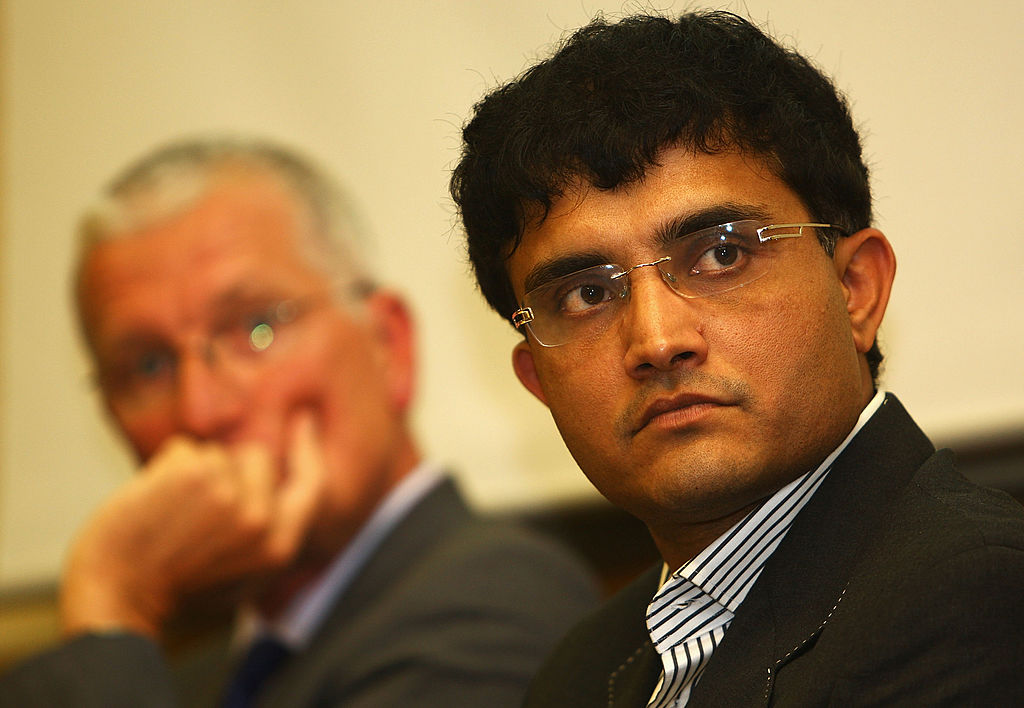Will Covid-19 pandemic turn out to be a blessing in disguise for BCCI
The IPL is uncertain and international cricket is virtually a thing of the past, with players no more rushing to the airport for the next game, rather hitting their apartment gym to keep the body in sync. They are waiting for the government guidelines more than the news from the selection boardroom.

Welcome to the time of Coronavirus, the enabler of a chain reaction that was unheard of and hopefully, the one-off halt to our great game of cricket. The way cricket came to a screeching halt, like everything around the world has, it was of little surprise that the politics took over the sphere inside the boardroom. Let’s consider the 2020 T20 World Cup in Australia for example. Although the country is one of the least-affected nations in terms of the impact of Coronavirus, they are still under lockdown and patience will lead them to a better position soon.
First, an India series, even without the proposed extended one, will pay Cricket Australia enough with the lucrative deal they have in India with Sony Sports Pvt. Ltd. Secondly, the 48% reduction in the projected revenue for 2020-21 and a 20% drop for 2021-22 season will have a little independent relation with the T20 World Cup cancellation - a move that can potentially throw a spanner in the small team’s works, who depend largely on ICC share to feed their infrastructure. The same goes for the ECB and BCCI, who draw fatter cheques through bi-laterals than any world event can even dream of, with the BCCI's broadcasting revenue in a year almost six times higher than the ICC grant they receive annually.
So how will cricket look like in a post corona world? Can the small teams be able to fend themselves? How will the teams like New Zealand, South Africa, Sri Lanka, Pakistan and Bangladesh be able to enhance their game? Will Ireland and Afghanistan have any sort of sustainability going forward?
And the answer lies in how the ICC politics shape up in the coming months, with Shashank Manohar, a big believer of having at least one ICC event every year to fill up the coffers, all set to bid goodbye to his position in August. For the BCCI, CA and ECB would never ever agree that the idea to protect their own TV revenue makes the situation pretty interesting, with coronavirus helping their case more than ever.
There have been multiple speculations and reports that Ganguly, whose BCCI tenure was supposed to end this July according to Lodha Committee recommendations, is eyeing the ICC Chair to replace Manohar. Let’s not kid-glove ourselves - Ganguly will surely want to be in the BCCI for it is a more powerful position than the lame-duck ICC one, but if the Supreme Court of India doesn’t rule out in his favour, he would much rather want to be in the system than waiting in the lounge to serve the cooling-off period. Even discounting that Ganguly is Ganguly, with the world cricket’s collective financial problems, he will have an easy ride.
It is a spell of higher pedigree and one unabashed mettle to focus on the tribe. Even during his playing days, Ganguly had the world at his bay - both as a cricketer and captain - and signed off as one of the unquestioned greats of the game. His tenure had seen a controversy, diatribe brewing now and then but he was credited for the change in mindset he brought to Indian cricket - not only by Indian fans but cricketers world over - and that is still widely hailed for his administrative nous. If Ganguly scions himself to the ICC role, he will have the required backing without any doubt. It will be heartbreak for Colin Graves, the outgoing ECB Chairman, who was openly supported by the BCCI big brass during their visit to Lord’s late last year as the obvious successor to Manohar.
The BCCI has been at loggerheads with the ICC since Srinivasan had to vacate his position, with Manohar taking a distinctive approach to his work. While it is easy to credit him for the abolishment of the Big Three Model, those in know would tell you that it was hogwash in the eyes of smaller nations. The BCCI received USD 405 million from ICC's estimated income of USD 2.7 billion from the rights cycle from 2016-2023, letting the bottom 92% of the ICC's members receiving a total of $160 million. The problem of the shares they distribute, they would hope, would come to a truce under Ganguly who, at his hearts, sees the sport’s long-term interests; a visionary in the truest sense.
Even beyond the plans of Ganguly’s ascent to the ICC, the BCCI knows that they hold the string further as far as cricket’s resumption is concerned. England have lost a bigger chunk of their season, Cricket Australia have lost money to the equity market and the less we talk about other boards’ financial viability, the better. In such a scenario, nobody, absolutely nobody, will want to be against the BCCI and won’t want a situation like South Africa 2013. It is a fundamental weakness of the world that keeps the BCCI in good stead as far as doubling up their monopoly for another few years.
Although it has been a common mocking trend across Twitter that ICC stands for "Indian Cricket Council", the real fact of the matter is anything beyond revenue has gone against BCCI in the last few years. When the board was under the control of the Supreme Court-appointed CoA, then it had found good enough objections within themselves and was left out of the most important Finance committee of the ICC despite contributing over 70% of the global cricketing revenue. The internal rift became so strong that the other boards found it easy to attack the BCCI with their clout, just as difficult as they are finding it now with the presence of a stable administration, under Ganguly.
Now, as much as Cricket Australia is dependent on the broadcasting money to refill their accounts, the same will be the story for many others, like Cricket South Africa, who wishes to get the Indian team for a three-match series in August this year. With no more ICC revenue for the year, the BCCI will know that they are in a position of privilege where they control the world cricket dynamics and manage to have a better relationship with the ICC, something that has been stringent in the last six years. But one can only hope that the association takes the flag of World Cricket onward and upward and not the other way around with confusion and chaos.

Comments
Sign up or log in to your account to leave comments and reactions
0 Comments